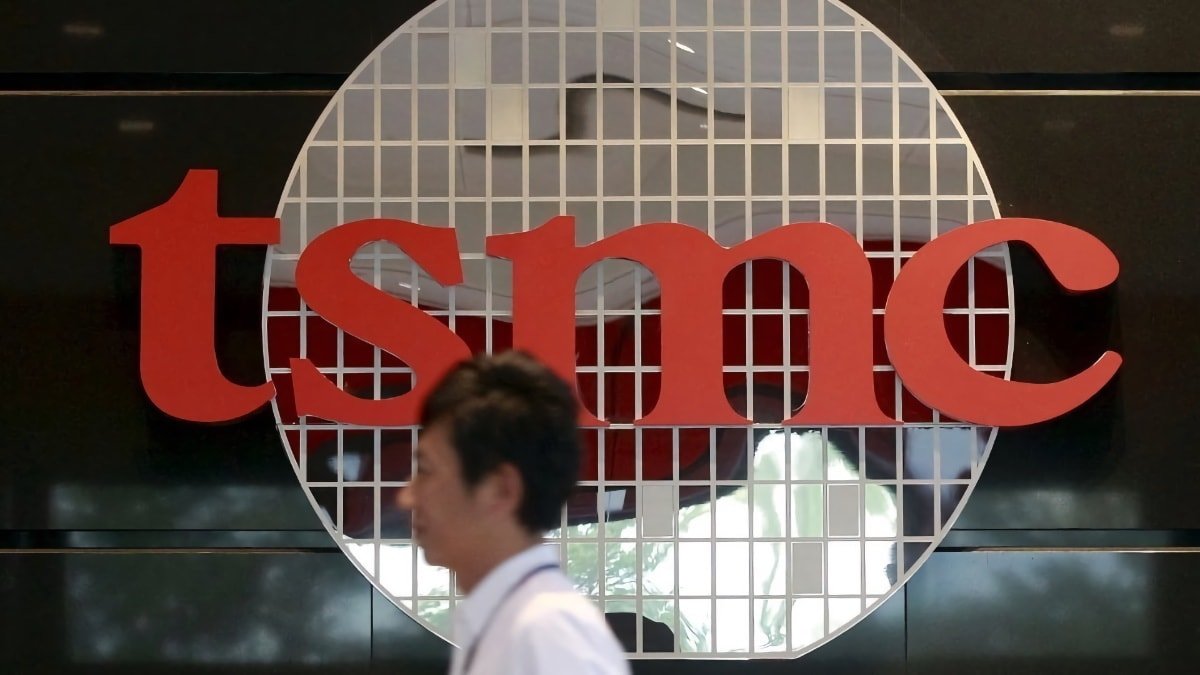Lawmakers urged to block TSMC worker visas over Arizona plant construction
A campaign is being waged against Apple chip partner TSMC over its first plant in the United States, demanding that TSMC is prevented from bringing over 500 workers from Taiwan.

TSMC
TSMC's Arizona plant has been delayed until 2025, under claims that it couldn't find enough skilled workers to open the facility on time. To catch up TSMC said in June that it would bring employees from Taiwan to the US to work on the facility.
However, a campaign doesn't want the workers to enter the country to work at the plant at all, and that TSMC should use US workers instead.
The campaign, Stand with American Workers, urges for residents to contact local congressional leaders to block TSMC foreign worker visas, and to instead force the chip maker into using workers from Arizona itself.
Citing assurances from politicians that work at the TSMC facility will predominantly be performed by Arizona workers, including later phases that are supported by CHIPs Act funding, the campaign believes TSMC's worker import announcement demonstrates "a complete disregard for American labor and the principles of the CHIPs Act.
The Stand with American Workers campaign and website is paid for by Revitalize Arizona, with major funding from Residents for Accountability and Arizona Pipe Trades 469.
Arizona Pipe Trades 469 is also making a separate call to contact lawmakers, again to urge the blocking of EB-2 worker visas. In a form letter the petition offers to send to representatives on people's behalf, there are claims that TSMC is "placing profit above worker safety" and that it is "deliberately misrepresenting the quality, skills, and experience of Arizona's workforce."
While the campaigns concern the construction of the facilities, TSMC has said that the influx of workers are not replacing any of the current 12,000 employees that will work at the plant, nor that it will change US recruitment plans.
A report from February claimed TSMC employees were unhappy with plans to use American workers for construction, with claims that US engineers questioned approaches, while Taiwanese engineers were allegedly accustomed to working long hours and on weekends.
Read on AppleInsider

Comments
Foreign workers can help get this thing up and running faster, so it has a better chance of success and can scale more quickly so more 'Murkins can work there.
But, hey, let's put up a wall and protect an empty building ourselves because "we don't need you here".
If that really is the case, then prohibiting them really is shortsighted. However, given that the first rule of corporate operations is to lie to everyone except the government and shareholders, and to withhold as much as possible even from them, I'm somewhat skeptical. If the interested parties, e.g. unions, can get them to actually agree to make these 500 people trainers, that would be good.
Things like tariffs, blocking temporary work visas, and limiting foreign students are clear signs of failure and admitting defeat. Rather than making the required investments and getting all of your ducks in a row you're now punishing a competitor who actually has a plan in place that's proven to be successful. Of course there are exceptions if your competitors are using unfair, illegal, or immoral means to achieve their advantage. I don't believe this is the case with US semiconductor industry. But if China makes a move on Taiwan, all bets are off. I doubt that it will come to that because it would end up being a murder-suicide for the Chinese economy and China's place in the world.
I'd also say that the US semiconductor industry is probably not as bad off as some people think. There are some very strategically important US-based companies still deeply engaged in the most critical aspects of the semiconductor industry even if not at the scale and velocity that Taiwan is able to achieve and manufacturing capacity that China can attain. The consumer sector would clearly suffer if a primary source of semiconductors is removed from play. The available organic resources and capacity would have to be redirected to those things that impact the basic needs and infrastructure needed to keep the US economy going long enough while bringing sufficient capacity online. No other country has ever demonstrated the resiliency and ability to scale up production of just about anything needed to solve the world's biggest problems as has the US.
I'm in no hurry to see the US being put in or putting itself in a position of having to prove itself once again. Nobody should have to suffer the inevitable consequences. To do this the US needs to fix the problems that are causing it to rot from the inside out and prepare itself to compete economically against the best of the best and not have to resort to waiting for a global crisis to finally decide to get its act together.
One of the reasons, China, South Korea, Japan, and Germany have done well in recent years is the willingness to mobilize, large numbers of engineers and construction people anywhere in the world if necessary, particularly outside of the energy (oil) sector. In order for TSMC to have a smooth transfer they have to send their qualified people over here to make that happen.